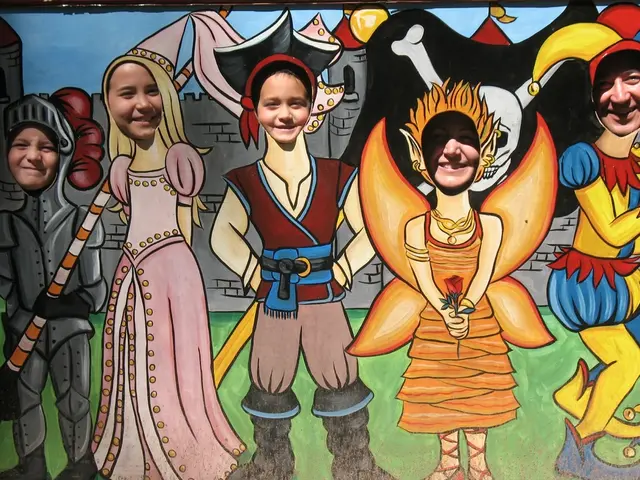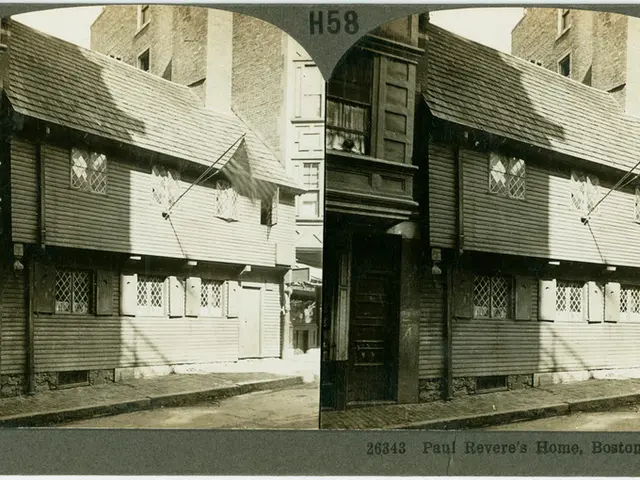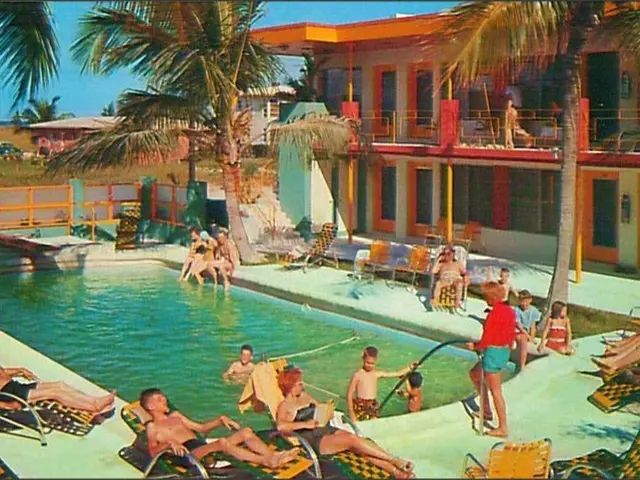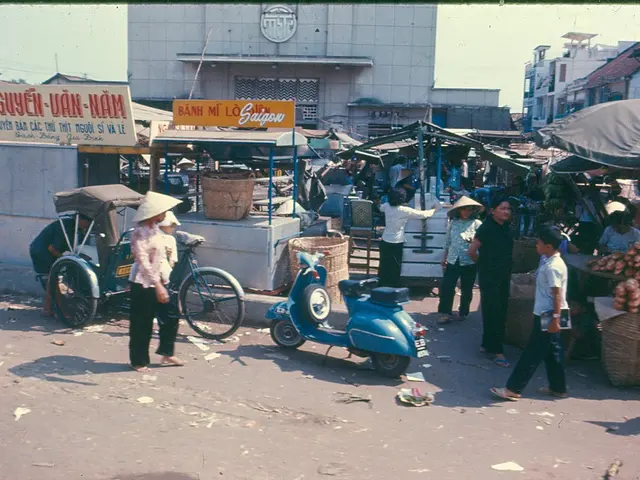Community Gatherings titled 'Raise the Reef Tuesdays' Bridge Lehigh with Local Networks
At Lehigh University's Art Galleries (LUAG), an immersive and thought-provoking exhibit called the Crochet Coral Reef is captivating visitors and sparking conversations about climate change. This global interactive art project, conceived by sisters Margaret and Christine Wertheim and their California-based Institute for Figuring, invites people of all ages and skill levels to contribute to handcrafted coral reef sculptures.
The Crochet Coral Reef is more than just a visual spectacle; it's a platform for education and advocacy. The intricate pieces, mimicking the shapes of actual coral and reef creatures, are created using crochet as a medium, inspired by hyperbolic geometry—a mathematical concept underlying coral structure. This blend of art, science, and community participation encourages reflection on the fragility of coral ecosystems, which are under threat due to issues like warming oceans, coral bleaching, and pollution.
The exhibit at LUAG is part of an ongoing event called Raise the Reef Tuesdays, held every Tuesday from 5:30 to 7 p.m. until Dec. 3. During these sessions, visitors can participate in creating crocheted pieces reminiscent of coral, contributing to the growing global project.
Stacy Hortner, an artist from Allentown, is one of the many local artists involved in the project. Her creations, along with those of hundreds of others, are on display at LUAG's Main Gallery until Dec. 7.
The Crochet Coral Reef project aims to bring a global issue to a local level, helping communities better understand environmental problems. For instance, the exhibit includes images of the Great Barrier Reef, showcasing the stark contrast between its original bright, colorful state and bony, bleached, dead sections due to climate change.
Moreover, the exhibit offers a unique local opportunity to participate in a global community art project. Over 10,000 people have contributed to the project at exhibits worldwide, fostering connections among artists, students, and faculty.
Dr. Wonsidler, a researcher at Lehigh who studied the impact of climate change on the Great Barrier Reef after the project's arrival at Lehigh, hopes the interactive aspect of the LUAG exhibition changes people's perceptions of museums as quiet, stuffy places. He believes that hands-on, interactive art projects like the Crochet Coral Reef provide opportunities for students, local artists, and faculty to forge connections and become active participants in climate change discussions.
Visitors to the exhibit often experience a moment of implication, contemplating their actions' impact on ecosystems. They also have a moment of recognition when they identify familiar plastic items in the crochet coral reef pieces, serving as a stark reminder of the pollution threatening our oceans and coral reefs.
In summary, the Crochet Coral Reef uses handcrafted art inspired by coral geometry to engage communities globally in an aesthetic and educational response to the impacts of climate change on coral reefs, encouraging reflection, awareness, and conservation efforts. The project continues to grow and send seeds to various locations globally, inviting more people to join the conversation and take action for a healthier planet.
- The Crochet Coral Reef, an immersive art project at Lehigh University's Art Galleries, serves as a platform for education and advocacy about climate change.
- The exhibit at LUAG encourages collaboration among artists, students, and faculty from the university's campus, fostering a global community.
- The project aims to bring attention to environmental issues, particularly climate change, by showcasing the impacts on the Great Barrier Reef and inviting visitors to participate in creating coral reef sculptures.
- The Crochet Coral Reef embodies the collision of science (environmental science), art, and lifestyle choices, inspiring visitors to consider their role in preserving the environment, including their home-and-garden habits that might contribute to pollution threatening our oceans and coral reefs.




